Overview of Argan Oil of Morocco
Argan Oil of Morocco is a prized natural elixir renowned for its numerous benefits for skin, hair, and overall wellness. Extracted from the kernels of the argan tree native to Morocco, this luxurious oil has been used for centuries in traditional beauty routines. Its rich composition of antioxidants, vitamin E, and essential fatty acids makes it a sought-after ingredient in cosmetics and health products worldwide.
Historical Background and Cultural Significance
Argan oil of Morocco is a prized natural product renowned for its rich nutritional and cosmetic properties. Extracted from the kernels of the argan tree native to Morocco, it has been treasured for centuries by local communities for its health benefits and beauty applications. The oil possesses a unique composition, including high levels of vitamin E, antioxidants, and fatty acids, making it highly valued in skincare, haircare, and culinary uses.
Historically, argan oil has been an integral part of Moroccan culture for generations. It has traditionally been produced through a meticulous process involving hand-harvesting, shelling, and cold-press extraction, preserving its purity and beneficial properties. The Berber women, who are the primary producers, have developed techniques passed down through generations, fostering a deep cultural connection to the oil. It is often used in sacred rituals, hospitality, and daily routines, reflecting its cultural significance within Moroccan society.
Culturally, argan oil symbolizes a blend of tradition, community, and sustainable practices. Its production supports local economies, particularly empowering women through cooperative initiatives. Recognized globally for its purity and natural qualities, argan oil of Morocco embodies the rich heritage and craftsmanship of the region, making it a symbol of Moroccan identity and a sought-after ingredient in the beauty and health industries worldwide.
Extraction and Production Process
Argan oil of Morocco is a highly valued natural product renowned for its nourishing and cosmetic benefits. Derived from the kernels of the argan tree native to southwestern Morocco, this oil is rich in antioxidants, essential fatty acids, and vitamin E, making it popular in skincare and culinary applications.
The extraction and production process of argan oil involves several meticulous steps to ensure the quality and purity of the final product. Traditional methods have been used for centuries, combining manual labor and modern techniques to maximize yield and retain the oil’s beneficial properties.
- Harvesting: The process begins with the collection of ripe argan fruits, which are carefully hand-picked to avoid damage to the tree and ensure only mature fruits are selected.
- Drying: The harvested fruits are then spread out to naturally dry in the sun, which facilitates easier extraction of the kernels.
- Removal of pulp: Once dried, the outer pulp is manually or mechanically removed to access the hard nut inside.
- Kernel extraction: The kernels are extracted from the nuts, often through manual cracking or using traditional stone mills, taking care to preserve the quality of the seeds.
- Roasting (optional): For culinary argan oil, the kernels may be lightly roasted to enhance flavor. For cosmetic oil, roasting is typically avoided to maintain nutritional integrity.
- Pressing: The kernels are cold-pressed using mechanical presses to extract the oil without the use of chemicals, preserving its natural properties.
- Filtering: The extracted oil is filtered to remove any impurities and sediment, resulting in pure, high-quality argan oil ready for packaging and consumption.
Key Regions in Morocco for Argan Oil Production
Argan oil of Morocco is a highly valued natural product renowned for its numerous health and beauty benefits. It is obtained from the kernels of the argan tree, which is native exclusively to Morocco. This oil is rich in essential fatty acids, antioxidants, and vitamin E, making it a popular ingredient in skincare, haircare, and culinary applications.
The key regions in Morocco for argan oil production are primarily concentrated in the south-western parts of the country. The most notable areas include the Souss-Massa region, particularly around Agadir, which is considered the heartland of argan farming. Other significant regions include Essaouira and Tarfaya, where the argan trees grow abundantly in semi-arid zones. These regions provide the ideal climate and terrain for argan tree cultivation, supporting sustainable harvesting and traditional extraction methods that have been practiced for generations.
Types of Argan Oil
Argan oil of Morocco is renowned for its numerous health and beauty benefits, and understanding the different types available can help you select the perfect one for your needs. Each variety of argan oil is crafted through unique extraction methods and processing techniques, which influence its aroma, color, and nutritional properties. Exploring the various types of Moroccan argan oil allows consumers to enjoy its full potential, whether for skincare, haircare, or culinary uses.
Pure Cold-Pressed Argan Oil
Argan oil of Morocco is widely renowned for its numerous skin and hair benefits, and it comes in various types, with pure cold-pressed argan oil being the most valued. This type is derived through a gentle pressing process that preserves the oil’s natural nutrients, antioxidants, and vitamins, making it highly pure and effective. Cold-pressed argan oil is free from chemicals and additives, ensuring it remains as close to its natural state as possible.
There are also other types of argan oil, such as refined argan oil, which undergoes additional processing to remove any impurities or smells, resulting in a lighter color and milder scent. However, this process may reduce some of the beneficial nutrients found in pure cold-pressed oil. Additionally, cosmetic-grade argan oil is often available, which is specifically formulated for skincare and haircare, providing concentrated doses of nutrients. Overall, for maximum health benefits and natural purity, pure cold-pressed argan oil is considered the best choice among the various types available from Morocco.
Filtered vs. Unfiltered Argan Oil
Argan oil of Morocco is renowned for its numerous beauty and health benefits, and understanding the different types can help consumers make informed choices. Among these, filtered and unfiltered argan oil are the primary varieties available, each with unique characteristics.
Filtered argan oil undergoes a purification process that removes impurities, sediment, and remaining bits of nut or pulp, resulting in a clearer, more refined product. This type of oil tends to have a longer shelf life and a consistent appearance, making it popular for cosmetic and culinary uses where clarity and purity are desired.
Unfiltered argan oil, on the other hand, retains natural particles and sediment from the extraction process. It often appears cloudier and may have a slightly thicker consistency. Many users believe unfiltered oil preserves more of the original nutrients and antioxidants found in the argan nuts, offering enhanced benefits for skin and hair care. However, it may have a shorter shelf life and requires proper storage to maintain freshness.
Both types of argan oil are valuable, with filtered oil preferred for clarity and stability, and unfiltered oil valued for its natural richness and potential health benefits. Choosing between them depends on specific needs and preferences, but both originate from the same rich Moroccan tradition of argan oil production.
Organic and Non-Organic Varieties
Argan oil of Morocco is renowned for its nourishing properties and versatility in skincare and culinary uses. There are primarily two types of argan oil: organic and non-organic varieties. Organic argan oil is produced from argan almonds that are grown without the use of synthetic pesticides, fertilizers, or chemicals, ensuring a pure and natural product. This type of oil is often favored for its environmental benefits and higher purity, making it ideal for sensitive skin and health-conscious consumers. Non-organic argan oil, on the other hand, may be produced with the use of certain chemicals or involved in processes that do not adhere strictly to organic standards. While it can still offer benefits, it might contain residues or additives that could be less desirable for those seeking the highest quality. Both types are extracted through cold-pressing methods to preserve their nutrients, but choosing organic ensures a more natural and eco-friendly option that aligns with sustainable practices often associated with Moroccan argan oil production.
Benefits and Uses of Argan Oil
Argan oil of Morocco is renowned for its numerous benefits and versatile uses, making it a popular choice in skincare, haircare, and culinary applications. Rich in essential fatty acids, vitamin E, and antioxidants, this natural elixir helps nourish, hydrate, and protect the skin and hair while also offering health benefits when incorporated into meals. Its unique properties have established argan oil as a prized ingredient in beauty routines and traditional Moroccan cuisine.
Skincare Benefits
Argan oil of Morocco is highly valued for its numerous skincare benefits and versatile uses. Rich in antioxidants, vitamin E, and essential fatty acids, it helps nourish and hydrate the skin, promoting a healthy and youthful appearance. Its natural anti-inflammatory properties can soothe skin conditions such as acne, eczema, and psoriasis, reducing redness and irritation. Argan oil also enhances skin elasticity, minimizes the appearance of fine lines and wrinkles, and provides a protective barrier against environmental damage. It is easily absorbed by the skin, making it suitable for all skin types.
In addition to its skincare benefits, argan oil can be used as a moisturizer, makeup primer, or facial oil to improve skin texture and radiance. It is also effective in reducing the formation of scars and stretch marks, helping to maintain smooth, supple skin. Overall, argan oil of Morocco is a natural and luxurious product that offers profound benefits for skin health and beauty, making it a popular choice in modern skincare routines.
Haircare Applications
Argan oil of Morocco is renowned for its numerous benefits and versatile uses, particularly in haircare. Rich in essential fatty acids, antioxidants, and vitamin E, it nourishes and revitalizes hair, making it healthier and more vibrant. This natural oil helps to moisturize dry scalp, reduce dandruff, and add a healthy shine to hair strands. Its lightweight, non-greasy texture ensures that it penetrates deeply without weighing hair down, making it suitable for all hair types.
In haircare applications, argan oil is frequently used as a conditioner or a styling product to tame frizz and flyaways. It can be applied as a leave-in treatment to improve hair elasticity and prevent breakage. Additionally, argan oil is effective for treating damaged and brittle hair, promoting smoother, softer locks. Regular use can enhance hair growth by strengthening hair follicles and improving overall scalp health. Whether used as a mask, conditioner, or serum, argan oil of Morocco is a natural, luxurious option to maintain healthy, shiny hair.
Health and Dietary Uses
Argan oil of Morocco is highly valued for its numerous health and dietary benefits, making it a popular addition to wellness routines. Rich in essential fatty acids, antioxidants, and vitamin E, it promotes healthy skin, boosts immune function, and supports overall vitality. Its anti-inflammatory properties can help reduce skin irritations and improve skin elasticity, making it a sought-after ingredient in skincare products.
In dietary uses, argan oil can be incorporated into salads, bread, or yogurt to enhance flavor and nutritional value. It is a beneficial plant-based source of healthy monounsaturated fats, helping to maintain heart health and regulate cholesterol levels. The oil also provides benefits for digestive health and can aid in absorption of nutrients due to its fatty acid composition.
Overall, argan oil of Morocco serves as a versatile health supplement and culinary ingredient, contributing to improved wellness and vitality through its natural, nourishing properties.
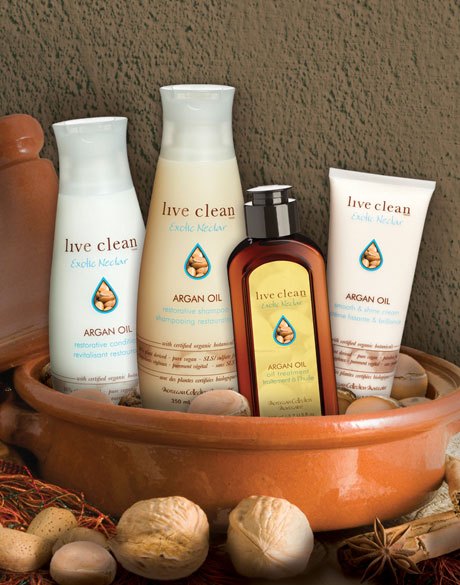
Quality and Certification Standards
Quality and certification standards play a vital role in ensuring the purity, safety, and authenticity of Moroccan argan oil. As a highly valued product worldwide, it is essential for consumers and producers alike to rely on established benchmarks that validate the oil’s origin and quality. These standards help maintain the traditional manufacturing processes while also meeting international regulations, guaranteeing that customers receive a genuine and high-quality product. Understanding these standards is crucial for appreciating the true value of Moroccan argan oil in the global market.
ISO Certification and Organic Labels
Argan oil of Morocco is renowned for its high quality and numerous health benefits, largely attributed to rigorous quality and certification standards. These standards ensure that the argan oil meets specific safety, purity, and sustainability criteria, providing consumers with confidence in its authenticity and efficacy. Certification bodies such as ISO (International Organization for Standardization) set global benchmarks for production processes, quality management, and product safety, helping producers maintain consistent quality. Many Moroccan argan oil producers also pursue organic certification labels, indicating that their products are made from organically grown argan nuts without synthetic fertilizers, pesticides, or chemicals. Organic labels not only highlight the natural purity of the oil but also emphasize environmentally sustainable practices, appealing to health-conscious consumers seeking authentic, eco-friendly products. Overall, adherence to recognized quality standards and certifications enhances the reputation and trustworthiness of Moroccan argan oil in global markets.
Indicators of High-Quality Argan Oil
High-quality Moroccan argan oil is distinguished by strict adherence to recognized quality and certification standards that ensure purity, safety, and efficacy. These standards help consumers identify genuine products and avoid counterfeit or adulterated oils. Indicators of high-quality argan oil include specific physical, chemical, and sensory characteristics that reflect its traditional extraction methods and superior production practices.
Key indicators of high-quality Moroccan argan oil include:
- Authenticity certifications such as ISO, ECOCERT, and Fair Trade, which verify organic origin and sustainable practices.
- Purity and absence of additives, indicated by clear labeling and transparent production processes.
- Proper extraction methods, typically cold-pressed, preserving nutrients and beneficial compounds.
- A rich, golden-green color and a slightly nutty aroma characteristic of authentic argan oil.
- Good viscosity and smooth texture without sediment or cloudiness.
- Low peroxide and acid values, confirming the oil’s stability and freshness.
- Packaging that protects against light and air to prevent oxidation and spoilage.
- Third-party testing results confirming the absence of contaminants or heavy metals.
Adherence to these standards and indicators ensures consumers receive a premium product from Morocco that delivers its renowned skincare, nutritional, and therapeutic benefits.
Common Adulteration and How to Avoid It
Argan oil of Morocco is renowned for its high quality and numerous health benefits, making it a popular choice worldwide. To ensure you’re purchasing authentic argan oil, it’s important to understand the quality and certification standards involved. Certified argan oil typically meets strict guidelines set by organizations such as the Organic Certification or ISO standards, which verify the purity and production processes adhere to quality parameters. Look for labels indicating cold-pressed extraction, organic certification, and geographical indication, as these are good indicators of genuine Moroccan argan oil.
Common adulteration of argan oil involves adding cheaper oils such as soybean, sunflower, or mineral oils to increase volume. Sometimes, counterfeit products may be heavily diluted or artificially colored to imitate genuine oil. To avoid adulteration, always buy from reputable sources that provide transparency about their sourcing and production methods. Genuine argan oil should have a nutty aroma, a golden-yellow color, and a smooth, non-greasy feel. Conducting a simple test at home—such as checking for clear separation of oil and sediments or performing a patch test—can also help identify adulteration.
Proper storage is essential to maintain the oil’s quality; keep it in a cool, dark place away from sunlight and heat. When purchasing, verify the product’s packaging date, batch number, and certification labels to ensure authenticity. By staying informed about quality standards and potential adulteration practices, consumers can confidently select genuine Moroccan argan oil that offers the full range of its natural benefits.
Economic Impact of Argan Oil Industry in Morocco
The argan oil industry in Morocco plays a significant role in the country’s economy, providing livelihood for thousands of local communities and contributing to national exports. Renowned for its unique health and cosmetic benefits, argan oil has gained international demand, boosting economic development in the region. This industry not only supports traditional practices and rural employment but also influences Morocco’s economic sustainability and growth strategies.
Local Communities and Employment
The argan oil industry in Morocco has significantly contributed to the country’s economic development by creating numerous opportunities for local communities and enhancing employment prospects. As a key agricultural sector, argan oil production supports the livelihood of many Berber women and rural inhabitants who are involved in the harvesting, processing, and packaging of this valuable product. The industry has also attracted international demand, boosting exports and generating valuable foreign exchange收入. Additionally, the growth of argan oil has fostered the development of related sectors such as tourism, artisanal crafts, and small-scale enterprises, further stimulating local economies. Overall, the expansion of the argan oil industry plays a crucial role in promoting sustainable development, reducing poverty, and empowering marginalized communities in Morocco.
Global Market Trends and Export Statistics
The argan oil industry in Morocco has significantly contributed to the country’s economy through robust export activities and market expansion. As a unique and highly valued product, argan oil has become a vital source of income for Moroccan communities, particularly in the southwestern regions where it is primarily produced. The industry’s growth has also attracted international attention, fostering increased demand in global markets. This surge in demand has not only boosted local employment but has also encouraged investments in sustainable harvesting and processing practices, ensuring long-term economic benefits.
Global market trends indicate a rising consumer preference for natural and organic health products, with argan oil increasingly recognized for its skincare, culinary, and therapeutic properties. The global demand has led to a sharp increase in exports from Morocco, making it one of the leading suppliers worldwide. Moroccan export statistics reveal a steady upward trajectory over recent years, with annual export volumes and values showing significant growth. The industry’s export figures are often influenced by international certifications and standards, which help maintain Morocco’s competitive edge in the global marketplace.
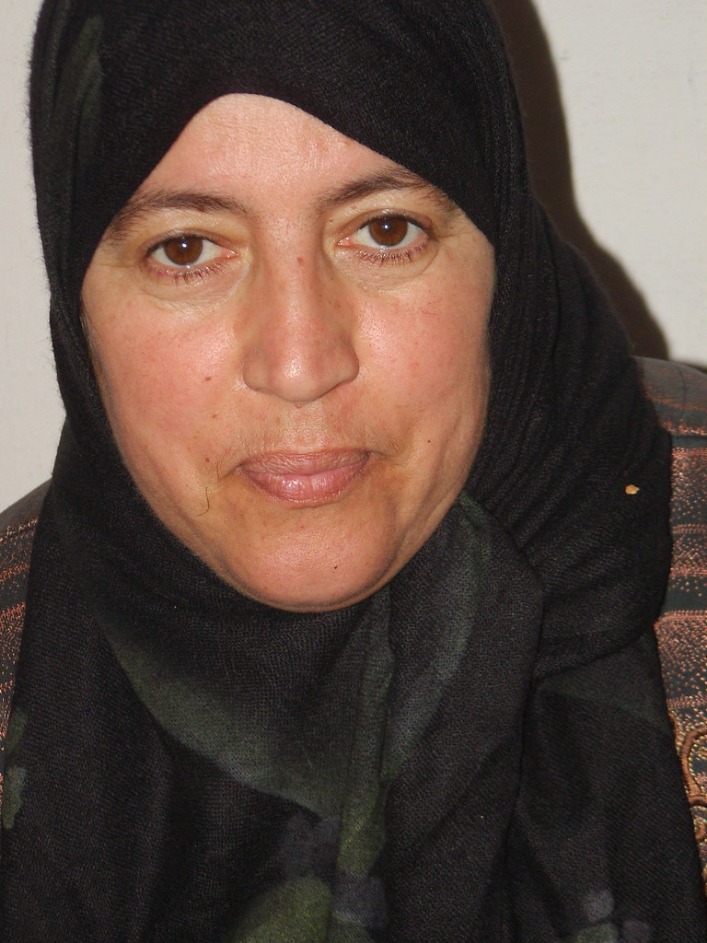
- In 2022, Morocco exported approximately 25,000 tons of argan oil, generating over $300 million in revenue.
- The European Union remains the largest importer, accounting for over 60% of Morocco’s argan oil exports.
- Export growth rates have averaged around 10-15% annually over the past five years.
- Morocco’s efforts to promote organic and fair-trade certifications have expanded its market share internationally.
- Emerging markets in North America and Asia are showing increased interest, reflecting broader global trends towards natural beauty and health products.
Sustainable and Ethical Harvesting Practices
The argan oil industry in Morocco has significantly contributed to the country’s economy by providing livelihoods for thousands of local communities and boosting export revenues. Its growth has attracted international attention, leading to increased demand for Moroccan argan oil worldwide. However, the economic benefits are closely linked to the implementation of sustainable and ethical harvesting practices, ensuring the preservation of both the environment and local traditions.
- Promoting sustainable harvesting helps prevent overexploitation of argan trees, ensuring their long-term availability for future generations.
- Ethical practices support local communities by providing fair wages and supporting traditional co-operatives, which helps alleviate poverty.
- Investments in eco-friendly processing methods enhance the overall quality of argan oil, increasing its competitiveness on the global market.
- Conservation efforts tied to responsible harvesting practices help maintain biodiversity and prevent desertification in the region.
- Supporting sustainable practices fosters a positive image for Moroccan argan oil, attracting ethically conscious consumers and boosting exports.
Challenges Facing the Argan Oil Industry
The argan oil industry in Morocco plays a vital role in the country’s economy and cultural heritage, but it faces numerous challenges that threaten its sustainability. From environmental concerns and climate change to overharvesting and market competition, producers must navigate complex issues to protect this valuable resource. Additionally, preserving traditional extraction methods while meeting growing global demand presents further difficulties for local communities and industry stakeholders.
Environmental Concerns and Climate Change
The argan oil industry in Morocco faces several significant challenges, particularly related to environmental concerns and climate change. As the demand for this prized product increases globally, pressures on the argan tree forests also grow, leading to risks of deforestation and habitat loss. Climate change exacerbates these issues by altering rainfall patterns and increasing temperatures, which threaten the sustainability of argan trees that thrive in semi-arid regions. These environmental changes can result in decreased argan tree productivity and jeopardize the livelihoods of communities dependent on argan oil production. Additionally, unsustainable harvesting practices and overexploitation of the trees further strain the delicate ecosystems, raising concerns about the long-term viability of argan forests. Addressing these challenges requires concerted efforts focused on sustainable farming, conservation initiatives, and climate resilience strategies to preserve Morocco’s valuable natural resources while supporting the economic and social welfare of local populations.
Overharvesting and Biodiversity Impact
The argan oil industry in Morocco encounters significant challenges related to overharvesting and its impact on biodiversity. As demand for this valuable product increases globally, there is a rising tendency to harvest argan kernels excessively, often without regard for sustainable practices. This overharvesting can lead to the depletion of argan trees, which are native to the southwestern regions of Morocco, threatening their long-term survival. Additionally, the removal of mature trees at an unsustainable rate disrupts the delicate balance of local ecosystems, affecting various plant and animal species that depend on these habitats. The erosion of argan forests due to overharvesting not only jeopardizes biodiversity but also reduces the natural regeneration of trees, creating a cycle that can lead to desertification. To safeguard the future of argan oil production and preserve Morocco’s unique biodiversity, it is crucial to implement sustainable harvesting methods and promote conservation efforts that protect both the argan forests and the broader ecological environment.
Market Competition and Price Fluctuations
The argan oil industry in Morocco faces several significant challenges, particularly related to market competition and price fluctuations. As global demand for natural and luxurious oils increases, numerous producers, both local and international, have entered the market, intensifying competition and affecting the industry’s stability.
One of the primary challenges is the proliferation of counterfeit and low-quality products, which undermine the reputation of authentic Moroccan argan oil and make it harder for consumers to identify genuine products. Additionally, fluctuations in supply and demand can lead to unpredictable pricing, which impacts producers’ profitability and sustainability.
- Increased Market Competition: The growing global popularity has attracted new entrants, including large corporations that can mass-produce argan oil, reducing the market share for traditional Moroccan cooperatives.
- Price Volatility: Factors such as agricultural seasonality, harvesting yields, and international market trends contribute to fluctuations in argan oil prices, making income unpredictable for local producers.
- Environmental Concerns: Overharvesting of argan nuts and unsustainable harvesting practices threaten the longevity of argan trees, potentially leading to decreased supply and further market instability.
- Quality Control Issues: Variations in processing techniques among producers result in inconsistent product quality, complicating branding efforts and consumer trust.
- Regulatory and Certification Challenges: The lack of strict international standards and effective enforcement can lead to market entry of inferior products, affecting premium pricing and market integrity.
Future Trends and Innovations
As the global interest in natural and sustainable products continues to grow, the future of argan oil from Morocco is poised for exciting innovations. Emerging technologies and evolving market trends are shaping the way this prized oil is produced, packaged, and consumed, ensuring its continued popularity and expanding its reach worldwide. These developments promise to enhance quality, promote sustainability, and meet the increasing demand for authentic Moroccan argan oil in the health, beauty, and culinary sectors.
Research and Development in Argan Oil Applications
Future trends and innovations in argan oil applications are poised to expand its versatility across various industries, driven by ongoing research and development efforts. As a natural, sustainable product native to Morocco, argan oil is increasingly recognized for its rich nutrient profile, including antioxidants, essential fatty acids, and vitamins. Emerging formulations aim to enhance its benefits in skincare, cosmetics, and health supplements, with novel extraction techniques maximizing yield and preserving bioactivity.
Research is focusing on developing advanced skincare products that utilize argan oil’s anti-aging, moisturizing, and regenerative properties, alongside eco-friendly packaging and production methods. In the food industry, innovations aim to incorporate argan oil into functional foods and culinary innovations, emphasizing its health-promoting qualities. Furthermore, scientific advancements are exploring its potential in pharmaceuticals for applications such as anti-inflammatory agents and skin healing solutions.
With the rise of sustainable and ethical sourcing practices, future developments will also likely emphasize fair-trade initiatives, organic certifications, and local community empowerment in Morocco. Overall, ongoing research and technological advancements are set to unlock new potentials for argan oil, making it an even more valuable resource in health, beauty, and nutritional markets worldwide.
Expanding Markets and Product Innovations
Argan oil of Morocco is poised for significant growth and innovation as global demand continues to rise. Future trends suggest an increasing focus on sustainable and eco-friendly production methods, which will appeal to environmentally conscious consumers. Innovations in extraction and processing techniques are expected to enhance the oil’s quality and shelf life, opening new opportunities for premium products. Additionally, expanding markets in Asia, Europe, and North America will drive demand further, encouraging companies to diversify their product offerings, such as argan-based skincare, haircare, and culinary items. As awareness of argan oil’s health benefits spreads, there will be a surge in value-added products and branded lines that emphasize authenticity and traditional Moroccan craftsmanship, cementing its position in the global market.
Promotion of Sustainable Practices and Fair Trade
Future trends and innovations in the argan oil industry of Morocco are poised to revolutionize both production methods and market dynamics, emphasizing sustainability and ethical practices. As global demand for natural and organic products increases, Moroccan argan oil is expected to further integrate innovative extraction technologies that reduce environmental impact and preserve the delicate ecosystems where argan trees thrive. Additionally, advancements in quality control and packaging will enhance product safety and consumer trust, fostering a competitive edge in international markets.
- Promotion of Sustainable Practices: Efforts are intensifying to ensure that argan oil production supports local ecosystems, with initiatives encouraging responsible harvesting and conservation of argan trees. This sustainable approach helps maintain biodiversity and safeguards the livelihoods of communities dependent on argan harvesting.
- Fair Trade Certification: Increasing adoption of fair trade standards ensures that local cooperatives and women’s associations receive fair compensation, empowering communities and promoting social equity. Certification also appeals to ethically conscious consumers, boosting market appeal globally.
- Innovative Packaging and Branding: Modern, eco-friendly packaging techniques coupled with transparent branding strategies are being developed to highlight the authentic Moroccan heritage and sustainable credentials of their argan oil. This enhances consumer engagement and supports premium positioning.
- Integration of Organic and Natural Certifications: The emphasis on organic certification is expected to grow, providing consumers with assurances of purity and environmentally friendly cultivation practices, further solidifying Moroccan argan oil’s reputation as a premium natural product.
- Technological Enhancements: The adoption of digital tools for traceability and supply chain transparency will promote trust and allow consumers to verify the origin and sustainability practices behind their argan oil purchase.

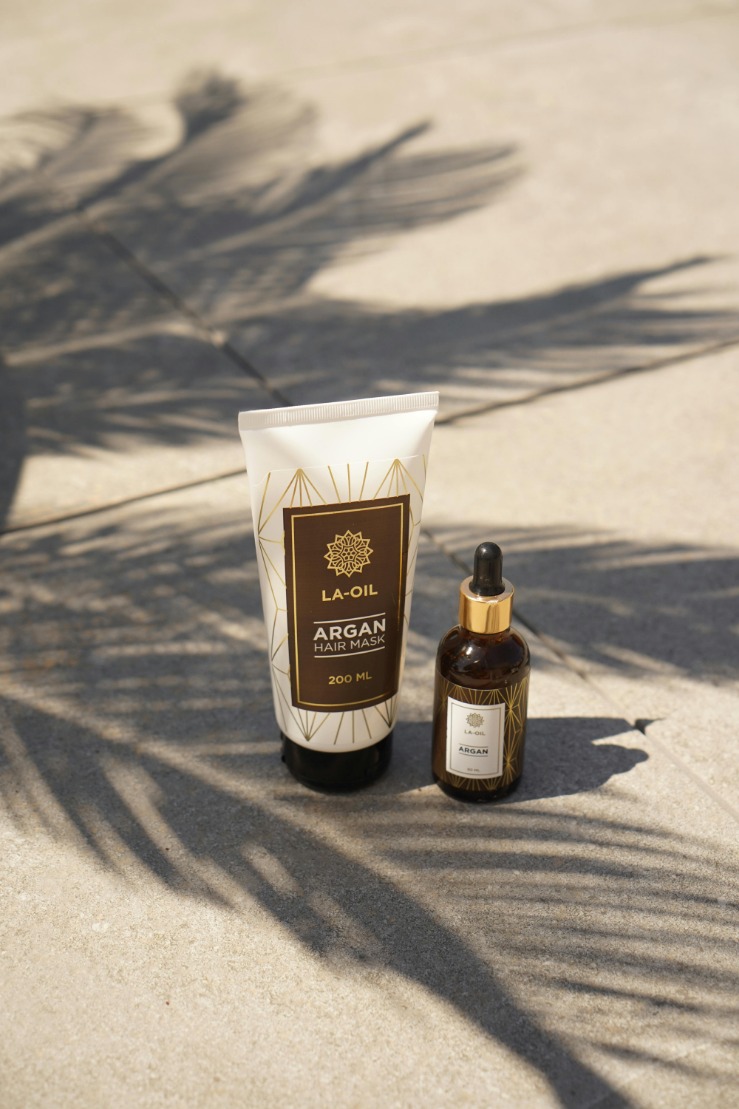
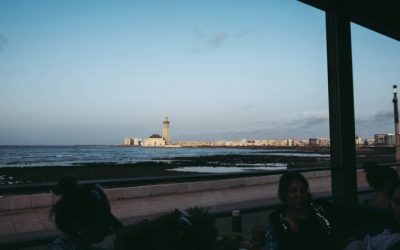
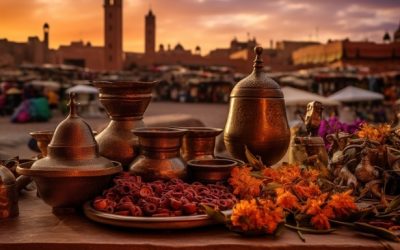
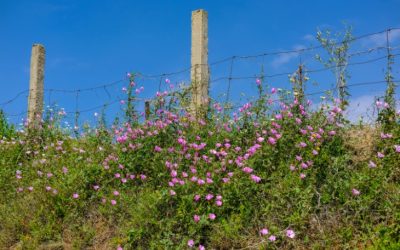
0 Comments